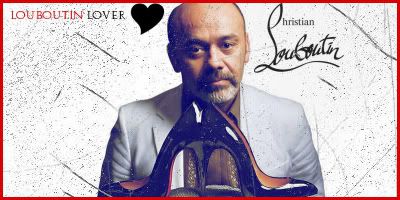Post by The Big PINK One♥ on Aug 22, 2007 7:12:41 GMT -5
DURHAM -- A record-industry trade group has asked Duke to tell another batch of students it's likely to sue them if they don't accept out-of-court settlement offers in connection with allegedly illegal music downloading.
The letters from the Recording Industry Association of America were among a batch that went out last week to 57 other schools across the country. The only other school in the state to receive any was N.C. State University.
Duke officials, however, said they wouldn't be able to deliver any of the letters because they don't know who was using the computers the trade group alleges were involved in swapping music files.
The university only keeps logs of network activity for two weeks. "Not a single one of these [letters]" alleged activity occurring that recently, Vice President for Student Affairs Larry Moneta said.
The letters are the second batch of threats Duke has received from the RIAA this year. The first targeted 35 students and this summer produced 28 so-called "John Doe" lawsuits against as-yet unidentified network users.
There was no word Tuesday how many students at Duke might be the targets of this month's dragnet.
The RIAA said it sent out 503 letters nationwide but didn't specify how many went to each campus. Moneta was away from his office Tuesday overseeing the move-in of freshmen and didn't have access to the figure for Duke.
The trade group's legal tactics have generated scathing criticism in some quarters, in part because its settlement offers demand a payment of several thousand dollars from each target.
In other lawsuits its estimates of the economic harm of digital piracy have run literally into the trillions of dollars -- as compared to the $13 trillion annual output of the U.S. economy.
The RIAA's litigation strategy has also come under attack because lawyers believe the group's prospective targets don't receive a fair opportunity to challenge the legal basis for a school's disclosure of their identity.
Judges in two states have blocked subpoena attempts, and lawyers are trying to contest them in a couple others.
Despite the controversy, Duke has complied with the group's demands when its logs have allowed officials to identify the students involved. The university has taken what Moneta terms "a middle-ground position" that it has a responsibility to teach the ethical use of intellectual property.
Duke and other schools also are facing pressure from Congress to cooperate with the RIAA's campaign.
Campus officials received a query this spring from a group of congressmen who sit on a key U.S. House committee and have received large campaign donations from figures in the entertainment industry.
The letters from the Recording Industry Association of America were among a batch that went out last week to 57 other schools across the country. The only other school in the state to receive any was N.C. State University.
Duke officials, however, said they wouldn't be able to deliver any of the letters because they don't know who was using the computers the trade group alleges were involved in swapping music files.
The university only keeps logs of network activity for two weeks. "Not a single one of these [letters]" alleged activity occurring that recently, Vice President for Student Affairs Larry Moneta said.
The letters are the second batch of threats Duke has received from the RIAA this year. The first targeted 35 students and this summer produced 28 so-called "John Doe" lawsuits against as-yet unidentified network users.
There was no word Tuesday how many students at Duke might be the targets of this month's dragnet.
The RIAA said it sent out 503 letters nationwide but didn't specify how many went to each campus. Moneta was away from his office Tuesday overseeing the move-in of freshmen and didn't have access to the figure for Duke.
The trade group's legal tactics have generated scathing criticism in some quarters, in part because its settlement offers demand a payment of several thousand dollars from each target.
In other lawsuits its estimates of the economic harm of digital piracy have run literally into the trillions of dollars -- as compared to the $13 trillion annual output of the U.S. economy.
The RIAA's litigation strategy has also come under attack because lawyers believe the group's prospective targets don't receive a fair opportunity to challenge the legal basis for a school's disclosure of their identity.
Judges in two states have blocked subpoena attempts, and lawyers are trying to contest them in a couple others.
Despite the controversy, Duke has complied with the group's demands when its logs have allowed officials to identify the students involved. The university has taken what Moneta terms "a middle-ground position" that it has a responsibility to teach the ethical use of intellectual property.
Duke and other schools also are facing pressure from Congress to cooperate with the RIAA's campaign.
Campus officials received a query this spring from a group of congressmen who sit on a key U.S. House committee and have received large campaign donations from figures in the entertainment industry.


